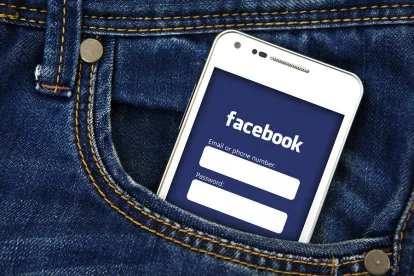A person who makes an accidental “pocket dialed” call has no reasonable expectation of privacy in the conversations exposed to the person who picks up that call, the Sixth Circuit ruled last week. The court compared this situation to a homeowner that mistakenly fails to cover his windows, exposing his actions to public view. In that situation, the homeowner would not have an expectation of privacy and the court reasoned that the maker of a pocket dialed call should not, either.
James Huff, who was chairman of the board that oversees the Cincinnati/Northern Kentucky International Airport (CVG) inadvertently placed a pocket dialed call while he and another executive discussed replacing the organization’s CEO. The pocket dialed call was to Carol Spaw, the CEO’s executive assistant. Within 90 seconds of answering the call, Spaw determined that Huff and the other executive were discussing the CEO’s employment situation, and that the call was not intended for her. She claimed the discussion was about discriminating unlawfully against the CEO, and she began taking notes of the conversation and instructed a colleague to do the same. The call lasted 91 minutes, and Spaw could hear both Mr. Huff’s discussion with the executive and Mr. Huff subsequently relaying that discussion to his wife, Bertha Huff, while the call was still connected. While Spaw listened to the entire call, she also recorded the last four minutes and 21 seconds of the conversation between the Huffs.
After the pocket dialed call ended, Spaw typed a handwritten summary of the call, which she provided to members of the Airport Board along with an enhanced version of the audio recording. The Huffs sued Spaw for intentionally intercepting their private conversations, in violation of Title III.
The Sixth Circuit held that James Huff had no reasonable expectation of privacy in the conversation because he failed to take steps to keep it private. The Sixth Circuit stressed that the issue was not whether Mr. Huff had a subjective belief that the conversations were private, but whether he actually exhibited an expectation of privacy, and whether that expectation was reasonable. Exhibiting an expectation of privacy “requires more than an internal belief in privacy,” the Court said. A person does not exhibit an expectation of privacy if he exposes those statements to the plain view of outsiders, or if he fails to take steps to prevent the exposure to third parties, the court found.
The court emphasized that Mr. Huff was aware of the risk of making inadvertent pocket dialed calls, and that he failed to take “simple and well-known measures” that can prevent such calls, including locking the phone, setting up a passcode, or using a mobile app designed to prevent pocket dials. Accordingly, “he is no different from the person who exposes in-home activities by leaving drapes open or a webcam on and therefore has not exhibited an expectation of privacy,” the court found.
Significantly, the Sixth Circuit found that Mrs. Huff did have a reasonable expectation of privacy in the conversation. While the fact that Mr. Huff placed the pocket dialed call negated any expectation of privacy he may have had in the conversation relayed through the call, the fact that Mrs. Huff knew her husband carried a cell phone that could make pocket dialed calls did not negate her expectation of privacy, the Sixth Circuit found. To hold otherwise, would “dramatically undermine the protection that Title III grants to oral communication,” because it would result in the loss of a reasonable expectation of privacy in face-to-face conversations where one party is aware that another party may have a cell phone, the court said. Under the circumstances, the court held that Mrs. Huff’s expectation of privacy from interception was justified.
Because Title III imposes liability only when a person intentionally uses a device to intercept oral communications, the Sixth Circuit remanded the case to the trial court to determine whether Spaw’s actions constituted an intentional use of a device to intercept Mrs. Huff’s oral communications. It rejected Spaw’s argument that her actions were not an “interception” under Title III.




 />i
/>i

